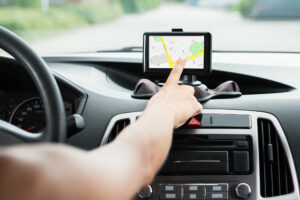
Last month, the New York Police Department issued a demand to Google, the parent company of the navigation app Waze, that it remove users’ ability to report DUI checkpoints. The NYPD said if Google did not alter the feature, it would take legal action on the grounds that it is unlawful.
According to the NYPD, the app contributes to unsafe driving, congestion and crime. However, NYPD’s legal justifications for taking on Google and Waze seem dicey at best.
The Legality of Waze
One of the main reasons why Waze has more than 100 million users is because unlike most other navigation apps, Waze allows users to self-report information that other users may find helpful. For example, users can share information about traffic, road conditions and accidents. However, users can also report things like road hazards, red-light cameras, police presence and DUI checkpoints.
Being able to report DUI checkpoints is the biggest issue that the NYPD has with the app, as they say that it impairs the ability of law enforcement officers to best protect citizens when drunk drivers can maneuver away from DUI checkpoints. That being said, reporting a DUI checkpoint isn’t really a crime. In fact, it’s far from it.
Reporting or publishing information about government conduct is protected by the First Amendment to the Constitution. There are exceptions to this rule, but reporting DUI checkpoints doesn’t meet those thresholds. So while police may wish that users couldn’t report this information, they may not have any grounds to legally get them to stop sharing this information.
There’s also the possibility that the NYPD wants this information kept secret for a more sinister reason. The NYPD is currently fighting a federal lawsuit that claims it has a history of using illegal DUI checkpoints disproportionately in predominantly minority communities. So are they trying to restrict access to this information so drunk drivers can’t avoid a checkpoint, or to save their own butts because of shady tactics?
Waze Curbs Drunk Driving
Another fascinating point in the case comes about when you actually dig into the data about the prevlance of drunk driving in regards to DUI checkpoints. In this case, the NYPD is saying they don’t want people to report checkpoints because they believe it will help drunk drivers get away with their decision, when in fact, it might actually do the opposite.
According to the Centers for Disease Control and Prevention, the goal of DUI checkpoints is deter drunk driving by “increasing the perceived risk of arrest,” not to catch more drunk drivers in the act. A number of studies have confirmed that when DUI checkpoint programs are widely publicized, fewer drunk driving accidents occur. Essentially, DUI checkpoints are more effective at reducing drunk driving when more people know about them than when they are secret. So if the NYPD actually cares about reducing drunk driving, they should be working with Waze to ensure their 100 million users know that checkpoints are out and police will be vigilant in catching drunk drivers. Instead of catching more drivers in the act, statistics say fewer people will make the choice to get behind the wheel after drinking.
It’s certainly an interesting case, and it appears the NYPD has no legal ground to get Waze to disable the feature. It’s unlikely to become a lawsuit, because the NYPD has no legal grounds for their demands. Hopefully Waze continues to publish this information, leading to more people making the smart decision not to drink and drive.





